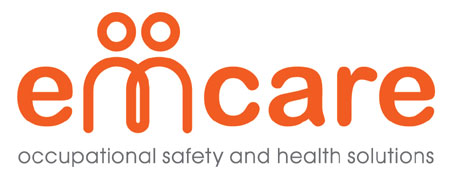Scotland urgently needs more well-trained and supported Mental Health Officers (MHOs). Despite statutory training requirements and existing university programmes, there are significant gaps in placement quality, legal application, CPD (continuing professional development), and workforce support. Closing these gaps requires collaboration between universities, local authorities, training providers, and government.
Organisations like Emcare can play a key role in strengthening training, offering CPD, and ensuring MHOs are equipped to meet today’s complex demands.
Why MHOs Matter in Scotland
Mental Health Officers are not simply social workers with additional qualifications. They hold statutory responsibilities under key pieces of legislation, including:
- The Mental Health (Care and Treatment) (Scotland) Act 2003
- The Adults with Incapacity (Scotland) Act 2000
- Provisions within the Criminal Procedure (Scotland) Act 1995
These duties are central to safeguarding rights and ensuring fair treatment for people experiencing mental disorder, incapacity, or crisis. MHOs may be called upon to assess individuals for compulsory admission, prepare social circumstances reports for tribunals, or work with health professionals, police, legal services, and families.
To carry out these duties effectively, MHOs must combine legal expertise, ethical decision-making, and practical skills. In reality, however, training inconsistencies and workforce challenges have created gaps that can compromise both practitioner confidence and service user outcomes.
What It Takes to Become an MHO
In Scotland, a Mental Health Officer must first qualify and register as a social worker with the Scottish Social Services Council (SSSC). After at least two years of post-qualification experience, they may apply to complete the MHO Award, a postgraduate qualification at SCQF Level 11, delivered through universities such as Strathclyde, Robert Gordon University, and Edinburgh.
The award requires both academic study and supervised practice placements. Trainees must demonstrate competence in:
- Applying complex legal frameworks to real situations
- Safeguarding the rights of vulnerable individuals
- Conducting assessments in pressured, often crisis-driven circumstances
- Working across multiple agencies and professional boundaries
Once qualified, MHOs must continue professional learning to remain effective. But despite these structured requirements, there remain persistent gaps in Scotland’s MHO training pipeline.
Key Training Gaps Facing MHOs in Scotland
1. Inconsistent Practice Placements
The MHO Award relies heavily on assessed practice placements, but the quality and diversity of placements vary between local authorities. Some trainees gain extensive experience in complex cases, while others face limited exposure due to resource shortages or rural constraints. Without balanced placements, newly qualified MHOs may lack confidence when faced with high-risk or unfamiliar scenarios.
2. Limited Real-World Legal Application
Understanding the letter of the law is different from applying it under pressure. Many trainees report that their training focuses heavily on theory but less on practical, scenario-based learning. Real-world decision-making—balancing rights against risks, navigating tribunal procedures, or handling emergency detentions—is not always sufficiently rehearsed in training environments.
3. Gaps in Ongoing CPD and Mentorship
Once qualified, MHOs often face limited opportunities for structured supervision, mentoring, and continuing development. CPD courses specific to emerging challenges—such as neurodiversity, co-morbid substance misuse, or trauma-informed practice—are not consistently available. Without ongoing investment, MHOs risk falling behind in both confidence and competence.
4. Workforce Pressures and Retention
Recruitment and retention are persistent concerns. In some areas, MHOs feel overburdened by workload, under-recognised in pay structures, or unsupported emotionally. This makes the role less attractive, further reducing capacity across Scotland and putting pressure on those who remain.
5. Weak Multi-Agency Training
MHOs rarely work in isolation. They must liaise with psychiatrists, GPs, police officers, solicitors, and advocacy groups. Yet multi-agency training is inconsistent. Many MHOs report being unprepared for navigating conflicting protocols, managing inter-agency communication, or coordinating emergency responses.
6. Emerging Complexities in Service Users
Scotland’s population is experiencing rising complexities in mental health: co-occurring conditions, substance misuse, dementia, and cultural and linguistic diversity. Training has not always kept pace, leaving some MHOs under-prepared for modern, multifaceted cases.
Why These Gaps Matter
These training gaps are not academic concerns—they have real consequences. An MHO who has not received broad exposure or up-to-date CPD may:
- Struggle to make confident legal decisions under pressure
- Apply procedures incorrectly, leading to legal challenge or rights violations
- Become risk-averse, delaying decisions that should be made promptly
- Experience stress and burnout, contributing to workforce shortages
- Deliver uneven standards of service, creating postcode lotteries in mental health care
For Scotland to meet its commitments under human rights law and ensure equitable mental health services, these training gaps must be closed.
How to Close the Training Gaps
Standardise and Strengthen Practice Placements
- Ensure every trainee has access to diverse placements, including crisis intervention, capacity cases, and forensic work.
- Incorporate simulation training such as mock tribunals, case-based scenarios, and role-play assessments.
- Train supervisors to provide consistent, high-quality mentoring and feedback.
Prioritise Practical Legal Training
- Update modules frequently to reflect current legislation and case law.
- Deliver scenario-based workshops where trainees apply the law in realistic situations.
- Involve legal professionals, tribunals, and advocacy services in teaching sessions.
Expand CPD and Mentorship
- Introduce CPD courses on trauma-informed practice, neurodiversity, and co-morbid conditions.
- Offer blended learning options so MHOs in rural areas can participate fully.
- Establish mentoring networks pairing experienced MHOs with new practitioners.
Support Workforce Retention
- Recognise the MHO role with appropriate grading and pay.
- Provide protected time for supervision, reflection, and CPD.
- Offer resilience and wellbeing training to reduce burnout.
Improve Multi-Agency Training
- Deliver joint workshops where MHOs train alongside health, police, and legal partners.
- Standardise protocols for referrals, information-sharing, and crisis management.
- Emphasise communication and collaboration in all stages of training.
Address Emerging Complexities
- Update curricula to include issues like cultural competence, substance misuse, dementia, and safeguarding for neurodivergent individuals.
- Integrate service-user perspectives into training design to ensure courses reflect real needs.
- Monitor outcomes continuously to adapt training as challenges evolve.
The Role of National Policy
Closing these gaps is not the sole responsibility of universities or employers. National bodies must also act:
- The Scottish Social Services Council (SSSC) should continue to enforce high standards for the MHO Award and CPD.
- The Scottish Government’s Mental Health and Wellbeing Workforce Action Plan highlights the importance of retention, CPD, and recruitment, but these commitments must be backed by funding.
- Local authorities must prioritise the role of MHOs, ensuring resources and incentives match the statutory significance of the position.
How Emcare Can Support MHO Training
As a leading training provider, Emcare is well positioned to fill gaps and complement existing university programmes. We can:
- Deliver specialised mental health courses that build on statutory requirements and strengthen applied practice.
- Offer simulation-based learning such as crisis role-plays and mock tribunals.
- Provide online CPD courses to reach professionals in rural and remote communities.
- Facilitate multi-agency workshops, bringing health, legal, and social care professionals together.
- Support ongoing professional development through mentorship, resilience training, and peer networks.
To view our current range of programmes, explore our mental health courses page.
Conclusion: Building a Stronger Future for MHOs
Scotland’s Mental Health Officers are the backbone of rights-based mental health services. Yet without stronger and more consistent training, workforce support, and CPD, the system risks failing both professionals and the people they serve. Closing training gaps is not just about professional development; it is about protecting rights, ensuring fairness, and building a mental health service fit for the future.
Emcare is committed to supporting this mission. To learn how our training can help your organisation strengthen its MHO capacity, please contact us.


